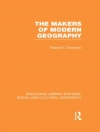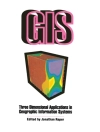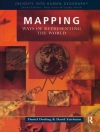According to current deabtes, ‘individualization’ has
frequently been proposed as the conceptual counterpart to
‘globalization’. It has often seemed that nothing would
be left once these processes have fully unfolded, other than
individual human atoms dispersed on a globe without any political,
economic or cultural structures.
Regardless of whether this description is based on any good and
valid observation, nobody drew the conclusion that suddenly emerges
as evident after reading Rüdiger Safranski’s lucid and
timely exploration of the issue: globalization, if it occurs, means
a radical change in the human condition. It brings human being in
direct confrontation with the world in its totality. Almost
unnoticed in broader debate, the scenario of globalization entails
a return – in new a radical guise – of the time-honoured question
of the ways of being-in-the-world of human beings.
In this compelling new book, the philosopher Rüdiger
Safranski grapples with the pressing problems of the global age:
‘Big Brother’ states, terrorism, international security
and the seeming impossibility of ‘world’ peace. He
suggests that the era ofglobalization should not be thought of as
that epoch in world history in which all human beings will see
themselves in the same, indistinct situation. There will always be,
Sanfranski argues, some need for understanding one’s own
situation by drawing boundaries and conceptualizing
‘otherness’ and individuality.
Tabla de materias
Preface: Understanding Globalization: Between Sociology and
Philosophy (Peter Wagner).
1. First nature, Second Nature.
2. Globalization.
3. Globalism.
4. Making Enemies.
5. World Peace?.
6. The Global and the Other Totality.
7. The Individual and the Immune System.
8. Jungle and Clearing.
9. False Glows.
10. Creating Space.
Notes.
Sobre el autor
R. Safranski, Philosopher and Writer












